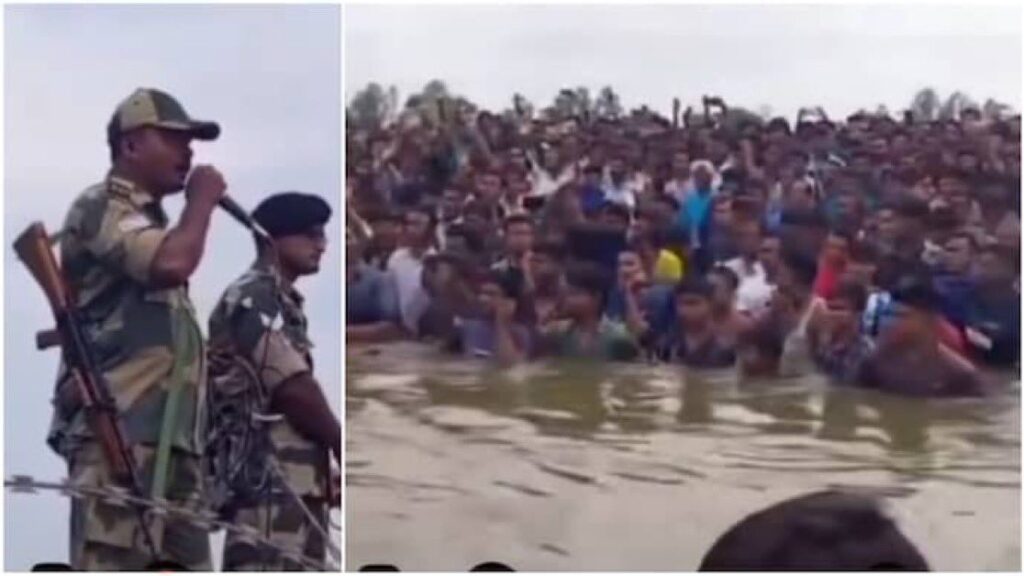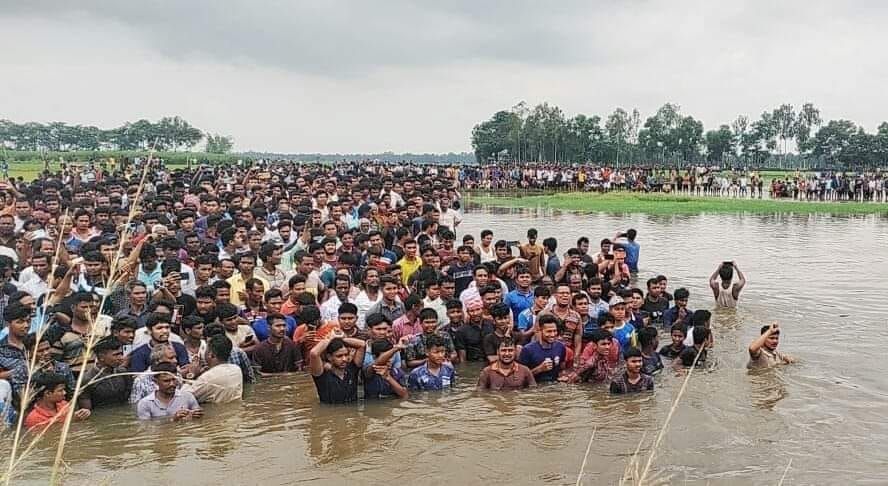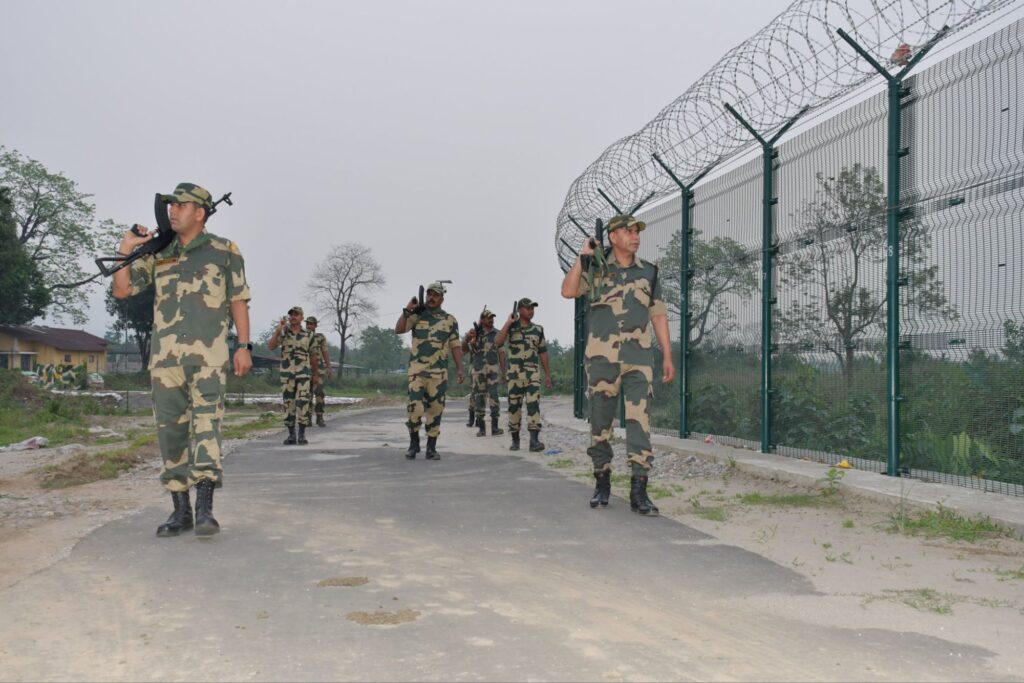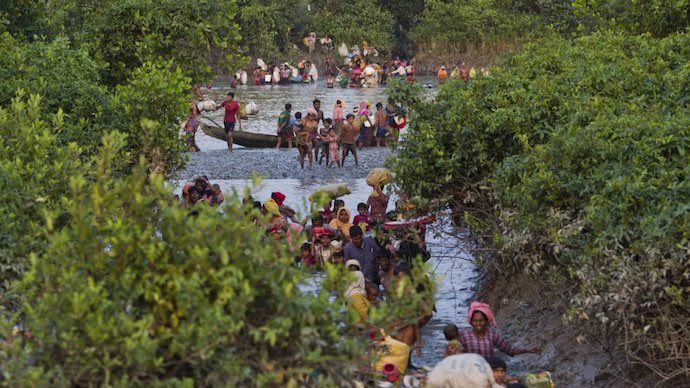Humanitarian Crisis at the India-Bangladesh Border: Growing Tensions and Uncertainty
The India-Bangladesh border crisis has escalated as political and economic instability in Bangladesh forces thousands of refugees to seek safety in India. A recent video capturing BSF soldiers pleading with Bangladeshi Hindus not to cross the border has gone viral, highlighting the dire situation. This humanitarian crisis underscores the challenges faced by both nations, as India’s longest border, spanning over 4,000 kilometers, becomes a focal point for migration. With attacks on minority communities in Bangladesh raising international concern, there is an urgent need for diplomatic efforts and international cooperation to address the root causes of this crisis and prevent further instability in the region.

In recent weeks, a video has surfaced, capturing the heart-wrenching interactions between Border Security Force (BSF) personnel and a group of Bangladeshi Hindus attempting to cross into India. The video, which has since gone viral, reveals the growing humanitarian crisis and the complex political challenges at the India-Bangladesh border. In the footage, BSF soldiers can be seen urging the crowd to refrain from crossing the border, pleading with them to understand the situation: “I’m sorry, I cannot let you cross the border.” This interaction highlights the rising instability in Bangladesh, driving many to seek refuge in India.

India-Bangladesh Border: A Lengthy and Challenging Boundary
India shares its longest border with Bangladesh, stretching over 4,000 kilometers, and this vast expanse presents significant challenges for border management. Unlike the mountainous and cold regions along the India-China border, the India-Bangladesh boundary is more accessible, making it a focal point for refugees seeking entry into India. With the BSF deployed along this border, the recent surge in attempts to cross highlights the urgency of the situation.

A Crisis in Bangladesh: Political Instability and Humanitarian Concerns
The unfolding crisis in Bangladesh has captured international attention, as political instability and economic challenges have fueled tensions. The situation is exacerbated by reports of attacks on minority communities, including Hindus, raising concerns about safety and prompting many to seek refuge in neighboring India. The interim government in Bangladesh, led by Mohammad Yus, has acknowledged these challenges, with Yus himself expressing concern over the attacks on Hindus and the growing unrest within the country.
A Plea for Resolution: Addressing the Humanitarian Crisis
The BSF’s message to the crowd reflects the complexity of the situation: “We cannot let you cross the border like this. The solution cannot be found in this way.” This plea underscores the need for a diplomatic and comprehensive approach to address the humanitarian crisis at the border. The Indian government, aware of the potential for a massive influx of refugees, faces the daunting task of balancing border security with humanitarian considerations.
The Economic and Social Impact on India
The implications of a large-scale influx of refugees from Bangladesh extend beyond humanitarian concerns, with potential economic and social impacts on India. The sudden arrival of refugees could strain resources, impacting the local economy and infrastructure. The Indian government, along with international organizations, must work collaboratively to address these challenges and find sustainable solutions.
Bangladesh’s International Standing: Struggles and Setbacks
The crisis in Bangladesh is not only a domestic issue but also affects its international standing. Recent efforts by the Bangladeshi government to retain hosting rights for the T20 Women’s Cricket World Cup have been met with resistance from several countries, citing security concerns. This development reflects the broader political instability in Bangladesh and its impact on international relations.

The Need for International Cooperation
As the situation at the India-Bangladesh border continues to unfold, there is an urgent need for international cooperation to address the root causes of the crisis. The United Nations and other international bodies must engage with both India and Bangladesh to facilitate dialogue and promote stability in the region. Prime Minister Modi’s recent statements highlight India’s concern for the safety and well-being of minority communities in Bangladesh, emphasizing the need for joint efforts to resolve the crisis.
Navigating Uncertain Waters
The humanitarian crisis at the India-Bangladesh border is a stark reminder of the complex challenges facing the region. As political tensions and economic instability continue to drive people to seek refuge, the need for a coordinated and compassionate response becomes increasingly urgent. India and Bangladesh, along with the international community, must work together to address these challenges and ensure the safety and dignity of those affected by this unfolding crisis.





1 thought on “Humanitarian Crisis at the India-Bangladesh Border: Growing Tensions and Uncertainty”